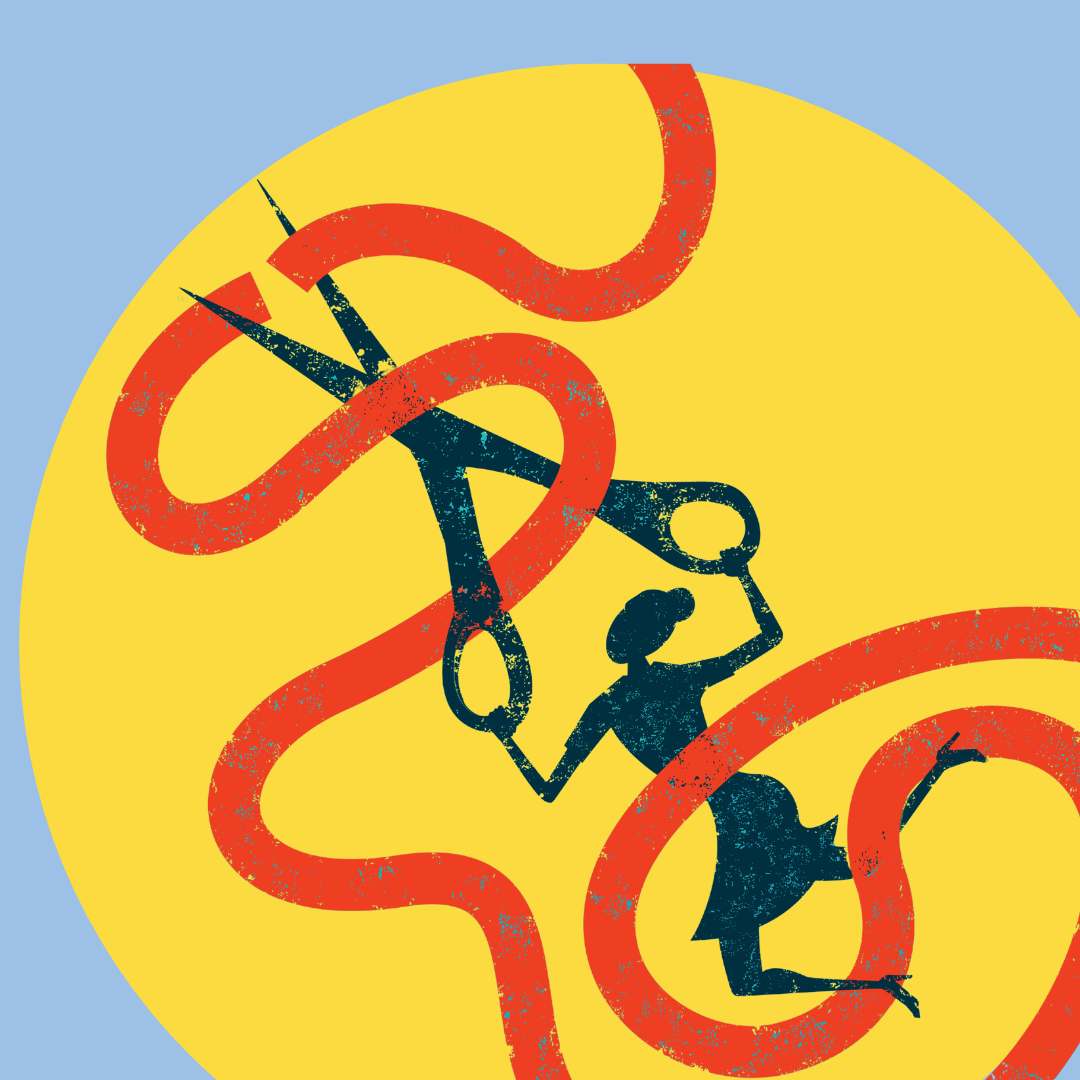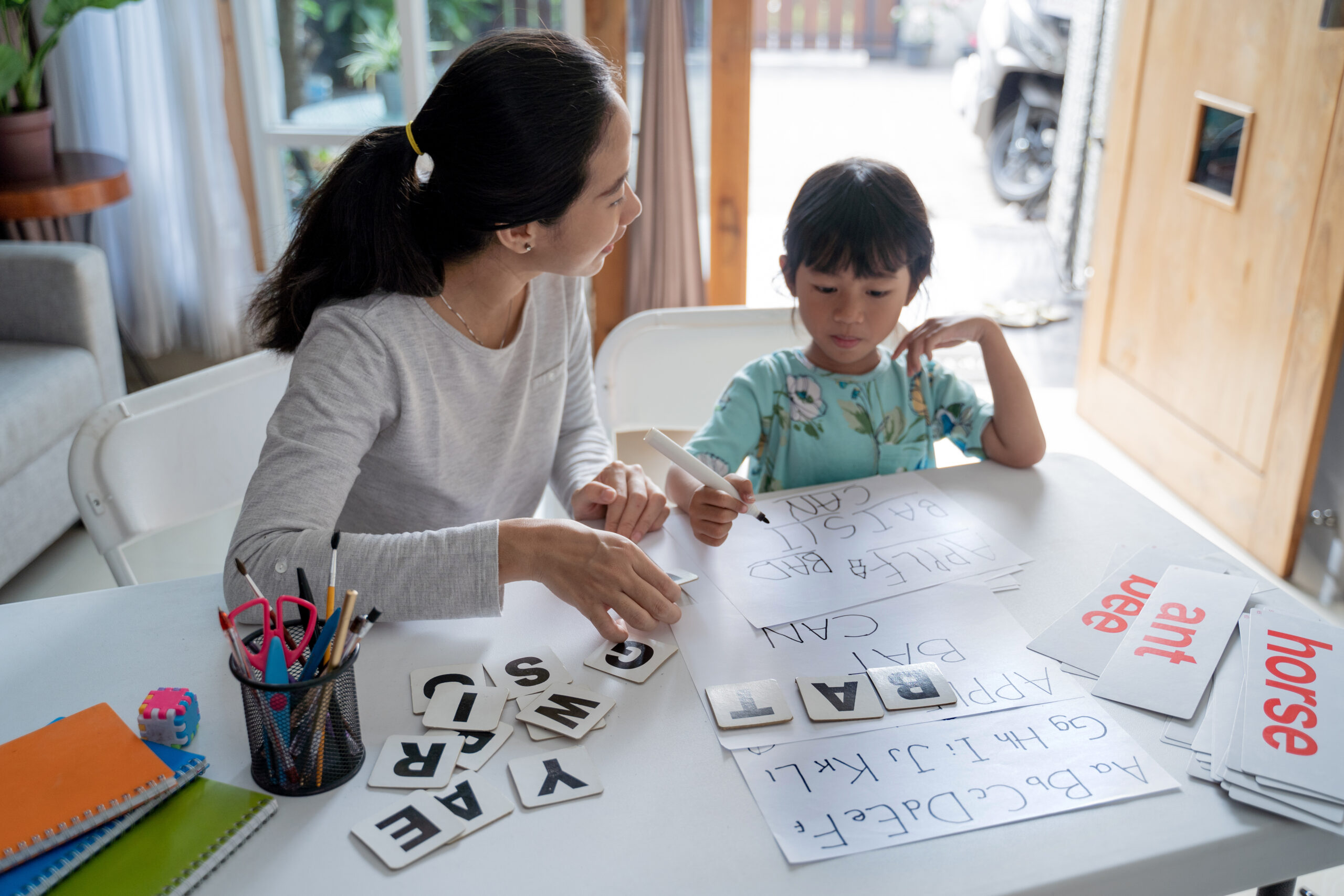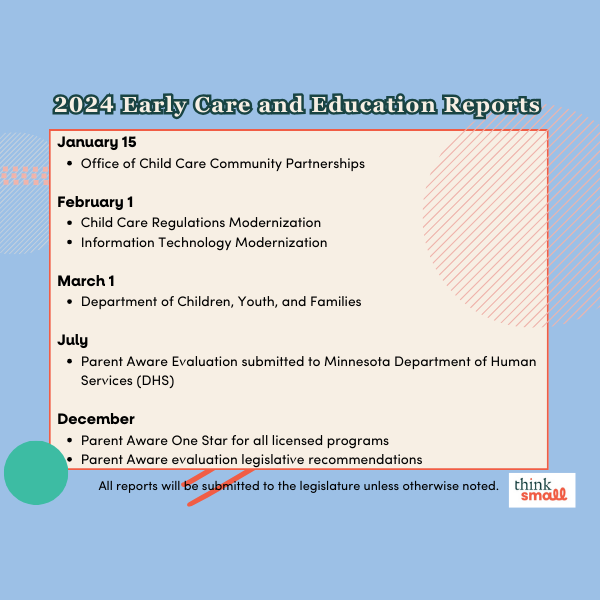CCAP helps families pay for child care costs while parents go to work or school. It is a complex program that receives federal and state funding. Minnesota counties administer the program with state and federal oversight. We reached out to Deb Fitzpatrick and Clare Sanford to give more context to the Child Care Assistance Program (CCAP) changes that passed during the 2023 legislative session. This post focuses on the reimbursement rate increase.
October 2023: Rates Update!
Maximum rates and registration fees have been updated! They take effect October 30, 2023. For more context, check out the County and Tribal Memo or Provider FAQ from the Department of Human Services (DHS). Programs that are accredited by some organizations, providers who hold certain professional credentials and those with a Three- or Four-Star Parent Aware Rating are eligible for the quality differential rates. The new rates and registration fees are listed below by county.
- CCAP Standard Maximum Rates – No Quality Differential
- CCAP 15 Percent Quality Differential Maximum Rates
- CCAP 20 Percent Quality Differential Maximum Rates
- CCAP Maximum Registration Fees
Child Care Assistance Program (CCAP) Advances. WOW.
Many exciting CCAP changes were passed in the 2023 session, and they can be game changers for providers, families, and communities across the state. For providers that already accept CCAP, we hope these items can help you accept even more families using it, and get you additional resources to put into compensation and quality improvements. If you don’t currently accept CCAP, we hope these changes will make it possible for you to do so. Families will likely have more providers to choose from and many fewer will need to make up the difference between the usual cost and what CCAP reimburses. CCAP is about to be far more valuable for families and providers than it has been in two decades.Provider Reimbursement Rate IncreaseAdvocates have been working on CCAP issues roughly forever, most especially getting provider reimbursement rates back to the federally-recommended 75th percentile of current market rates. Minnesota used to be a national leader in paying those rates, but the budget cuts of 2003 slashed support for CCAP. Since then we and other advocates have been fighting for tiny steps forward, crumbs really, and even those advances were few and far between. Really, as recently as 2020 Minnesota was facing the loss of federal funds because it refused to update reimbursement rates to the 25th percentile of 2018 market rates. We were only at the 25th percentile of 2011 market rates. Pathetic! That meant the rates covered the full costs of care at fewer than 1 in 4 child care providers, putting both families and providers in a difficult, if not impossible, position.It took 20 years (literally) but we got it done in 2023. Minnesota will once again be one of the best states in the nation for reimbursement rates:
- 75th percentile of current market rates;
- Automatically adjusted to current market rates every 3 years;
- New rates will be published in September 2023
- New rates effective 10/30/2023
Ability to Collect Full CCAP Reimbursement Rate – Even if Private Pay Families Receive DiscountsRubbing your eyes, shaking your head? Nope, it’s real. Like we said, these are WOW changes that we hope are going to really open up the universe of providers able to accept CCAP and the choices families across the state have for quality child care.During session we heard concerns that while a move to the 75th percentile was long overdue, such a big jump could lead some providers to price out their private pay families (since providers have always operated under the thought that they cannot collect from CCAP anything more than they collect from private pay families). Some were concerned that they wouldn’t benefit from an increase in CCAP rates if they chose not to increase private pay rates to the same amount. That would have been each provider’s choice, of course, but not ideal. It was extremely important to advocates and legislators leading the CCAP charge that something be put into law to clarify that providers can collect the full, increased CCAP rates while also maintaining the ability to make individual business decisions for collecting tuition from private pay families as they saw fit.The language that passed into law clarifies that providers are always allowed to provide their own financial assistance to private paying families. This can and does take many forms – employee discounts, sibling discounts, bank vs. credit card payment discounts, pay in advance discounts, “eating” the difference between CCAP rates and your tuition if your tuition is higher, etc.But how would this work? All will depend on a provider’s individual situation and written policies.Here’s an example of one potential scenario using fake numbers:
- CCAP weekly infant rate: $500
- Provider’s published private pay weekly infant rate: $500
- Discount offered all private pay families (in this case let’s say a discount to families that pay in advance of services): $100/week
- In this scenario a provider could collect $500 from CCAP and $400 from a private pay family
This isn’t necessarily super easy. Providers will still have to track and collect $500/week from a private pay family who doesn’t qualify for the discount(s) you offer. But as long as you are following written policies to back this all up, you are not doing anything wrong.Whoa. This feels like a big change from how we currently do things…We understand that this might give people a funny feeling, and will take some getting used to. This is not cheating or committing fraud. It is simply collecting all public funds providers could be eligible for, and also a recognition that providers incur additional administrative expenses when accepting families using CCAP that aren’t part of serving private pay families. If a provider ends up collecting a higher amount from a families using CCAP than they do for most or even all of your private pay families, think of it as additional support for that additional time and effort.The Minnesota Department of Human Services (DHS) plans to send a detailed FAQ on this clarification to providers in September 2023.Want to learn about other changes to CCAP this legislative session? Check out the rest of the series.By Clare Sanford, Vice President of Government and Community Relations at New Horizon and the Government Relations Chair for the Minnesota Child Care Association & Deb Fitzpatrick, Policy and Research Director at the Children’s Defense Fund-Minnesota







